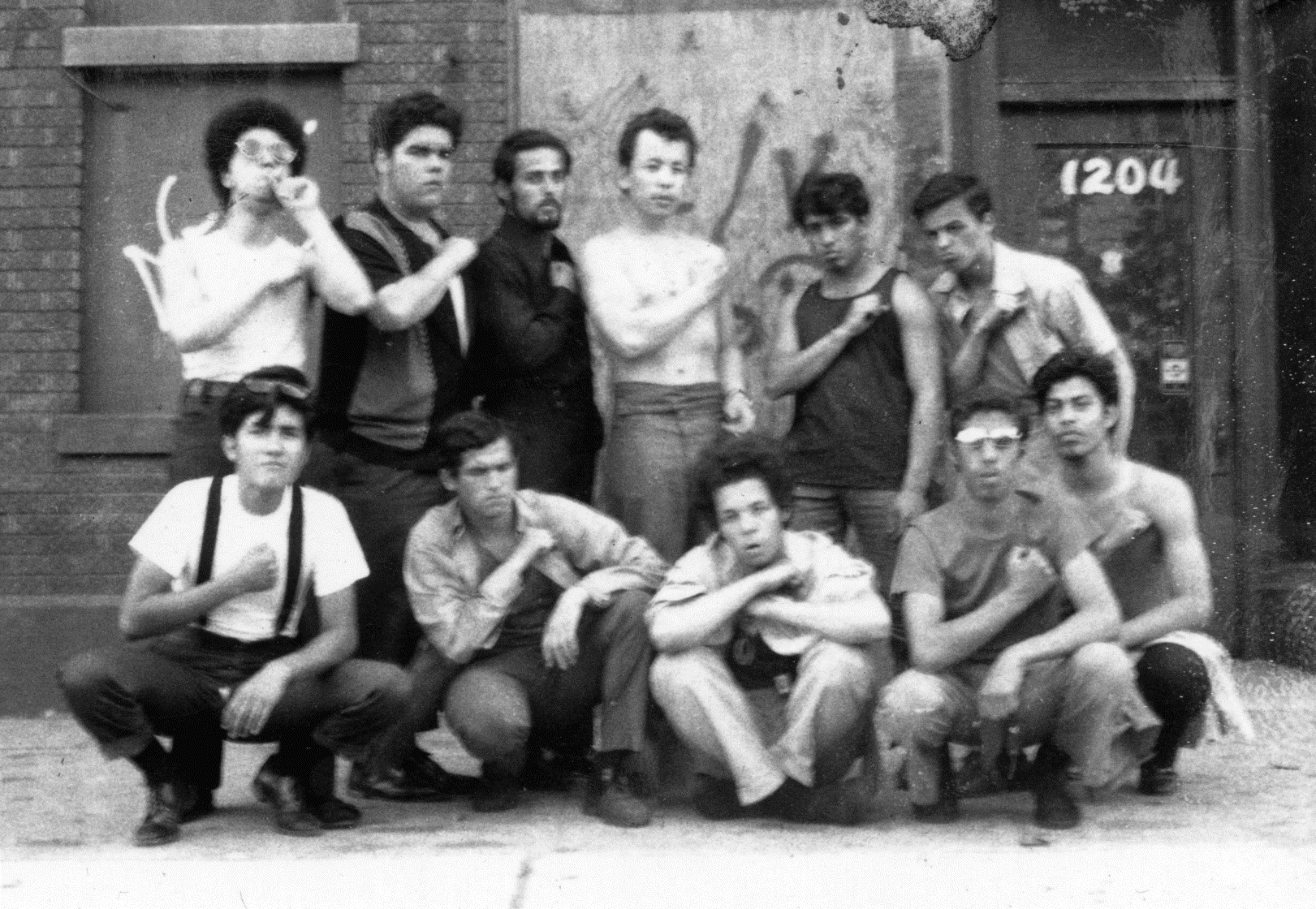
Following Tommy
Bob Hartley
(Cervená Barva Press)

We first meet Jacky when he is but seventeen, living with brother Tommy and father "Junior" in a tenement in West Side Chicago. It's no bed of roses. Junior has been out of his mind since mother died. He's so bad off that he has been forbidden entrance to the fifteen nearby bars along Chicago Avenue, all because of his antics when drunk ("passing out on pool tables, pissing in their booths, throwing up on their customers, begging drinks, borrowing money, and challenging phantoms to put 'em up").To add to Jacky's problems there is cousin Hippo --- who evidently looks like a Hippo --- and the boy's mother Margaret who is a loonycakes. Hippo once wakes to find her trying "to nail his bedroom door shut with a 2x4 and a handful of three-penny nails.".
Worst of all is Tommy. He hates the police, hates anyone who contradicts him, and most viciously, hates "The Coloreds." It is this that foments most of the action in Following Tommy, for a black family has moved into the neighborhood; since they are suspected of "block-busting," they become fair game for tormenting by the white residents. Tommy takes up the cudgels. First, he throws a brick through their front window; then he torches their car; finally, towards the end here, we are told that he is planning to sneak in and set their house on fire. Brother Jacky will have to help him, driving the escape car.
§ § § What brings life to this period piece is Hartley's ability to show, and show precisely, the psychological effect of living in a poor neighborhood in the 1960's Chicago West Side. In addition, Jacky is a boy who idolizes his older brother, will do nearly anything he tells him to do ... even when he feels it's wrong. It gives the novel a feeling of inevitability that makes one uneasy as the ante is upped, chapter by chapter. When Jacky gets arrested for (Tommy's idea again) stealing whiskey from a neighborhood bar and killing the guard dog, the policeman who questions him at the station (he is also the owner of the bar and the now-dead dog), the boy gets interrogated Chicago style. During this, Policeman Doyle
took a fistful of my hair, his fingernails digging into my scalp, ripping some of the strands as he whipped my head back, a rush of light, the blur of his face, then my head rushing forward, my nose crunching against the wood, the flashes again, darting in front of me and then a spreading stain of blood on the table.
For relief, there is a brief romance --- Jacky's first --- with Peg; but quickly we move to buying a handgun (again, Tommy's idea), and preparations for the final fire-bombing.
One might read Following Tommy to get some insight into the roots of mid-century juvenile delinquency, or, perhaps, as a study of post-WWII urban life. I wish I could recommend it to readers because it is an incisive portrait of the detritus of a typical American big city from so long ago, with powerful descriptions of seamy apartments and half-mad alcoholics and exploding cars and cops beating up prisoners. I wish I could, but I found it just too bleak.
Not long ago we reviewed another growing-up-poor novel filled with persecution, child-beating, rape, the selling of bodies, and various other horrors of modern life among the poverty-stricken. We found ourselves wondering why people would pay to read it, no matter how expertly told.
Our thought was that you and I are plagued by enough ghastlies in our personal lives or on television and that perhaps this might be not such a good time for another bash-up. We feel the same about Following Tommy. It's a story with brilliant detail about prejudice, the dark life on the streets, some truly ghastly characters ... but as it stabs us again and again, it offers no relief. Which is what, we think, a worthy novel must do. Give us some of the very relief that life is often kind enough to give us.
In our own lives, there is always that odd blend of the great and the ghastly, the uplifting and the downing, the wondrous and the ruinous --- the very same mix of good and bad that runs us all, that will always run us, that we will never be able to leave behind ... until the day we finally pop off.
For that reason, we suggest that this novel is not only good; it's too much.
--- Richard Saturday